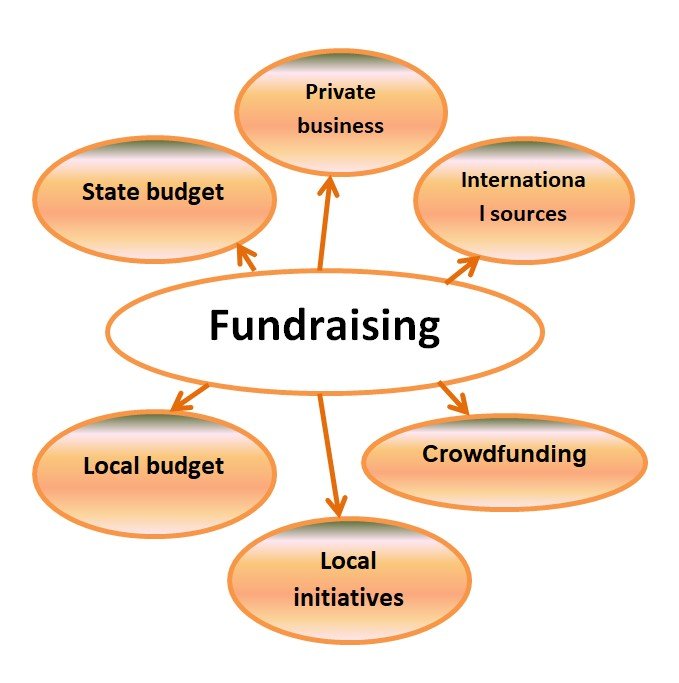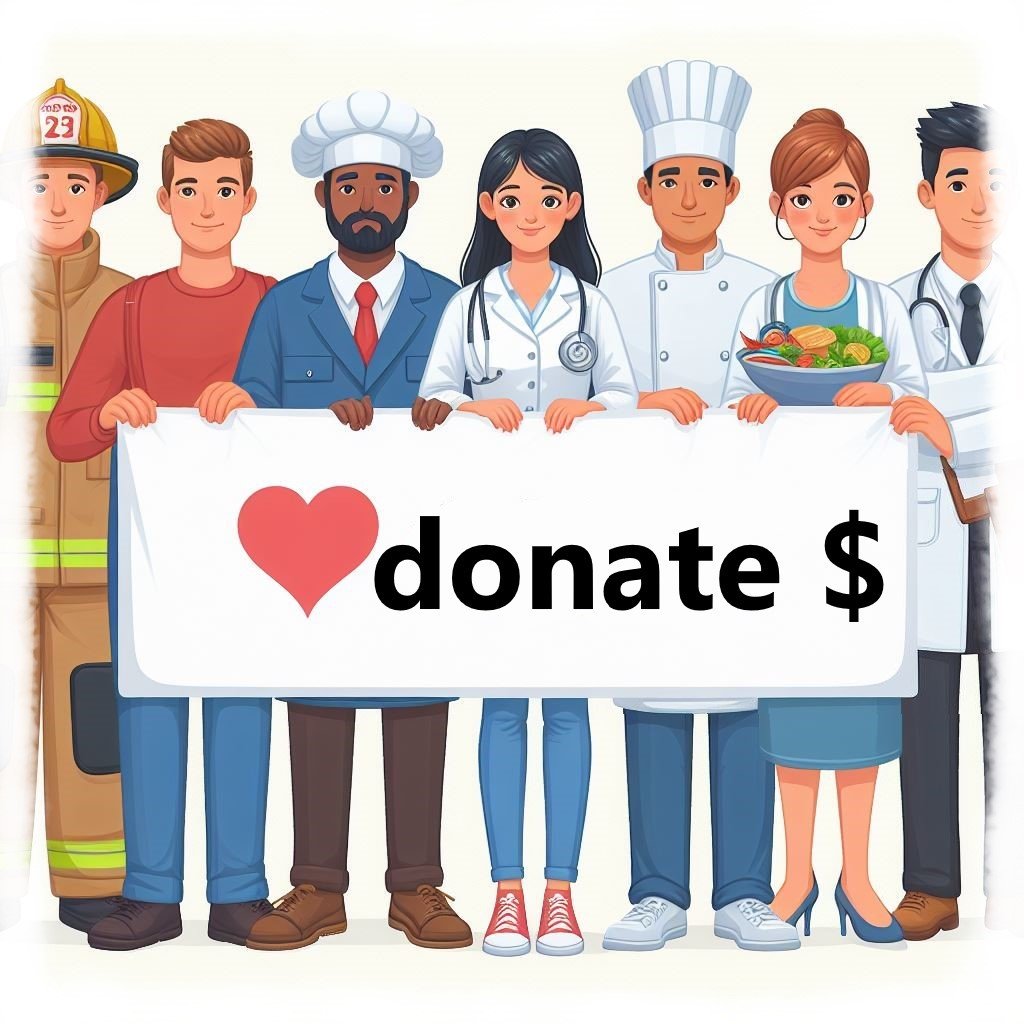
Fundraising
Chapter 4 of the manual “Local Community Funding Guide – models, resources, establishment and activity of a community foundation”, by Andriy Dubovyk https://orcid.org/0009-0006-4025-3434.

Fundraising – “resource mobilization” or “fundraising” is the process of comprehensive attraction of resources (financial, human, technical, material, informational or other) for further implementation of existing relevant projects or support of activities of a specific entity that does not involve financial gain (profit).
Fundraising is not exactly “begging for money”, but rather “offering to make a donation”, it is a planned work aimed at finding sources of donations that will be made consciously. In the process of fundraising, certain partnerships are established and a strategy of cooperation with people or organizations that have the ability to provide material support is adopted.

Ways to raise funds
To successfully raise funds for non-profit foundations, local communities should simultaneously use different ways and means, namely
Local budgets: for this purpose, local communities can actively participate in budgeting and subsequent lobbying for the allocation of funds for priority projects.
State subsidies and grants: the state constantly provides subsidies and grants to local communities for their priority goals. To do this, local communities should actively monitor available grant programs and properly prepare the relevant applications to obtain the necessary funding, for which it is best to allocate separate specialists.
Partnership with the private sector. Working with businesses and entrepreneurs from the private sector to solicit donations on an ongoing basis is also an effective way to raise funds. Local communities can negotiate with representatives of local businesses to fill the fund to further finance specific projects or create public-private partnerships (this includes investments in infrastructure, sponsorship of various socio-economic events, or funding of social programs).
International foundations and organizations. A large number of different international organizations and specialized foundations also regularly provide funds for local projects in Ukraine. Communities can work closely with such organizations and apply for grants or receive appropriate technical support. This can be quite useful for implementing projects in the fields of education, environment, and healthcare.
Postulates of effective fundraising
Effective fundraising is based on several postulates:
– first, you need to have a clear description (project, program, etc.) of the “good cause” for which funds will be raised;
– secondly, a clear presentation of the foundation for potential sponsors, philanthropists and benefactors: who are its founders, what resources it has, and what good deeds it has already done and what more is in the pipeline;
– availability and constant updating of the database of potential donors;
– potential benefactors should be offered not just one donation option, but several at once (for example, a direct donation offer and an offer to install a charitable collection box on the benefactor’s premises);
– all sections of the project should be directly related to the problem that the project is going to solve;
– periodic reporting on the resources (funds) spent, which helps to gain the trust of donors. At the same time, it is important to demonstrate the results of the fundraising campaign – this helps donors feel that their donations are crucial in achieving the project’s goal;
– a well-designed donation page: this will inspire additional trust in people and make them more likely to donate to the project;
Benefactors
As a rule, benefactors are divided into sponsors, donors, philanthropists, and patrons.
A sponsor can be either an individual or an organization whose support is based on receiving both direct and indirect benefits. The latter often involves the dissemination (popularization) of certain pre-agreed-upon information about the sponsor (brand mentions, information about activities, etc.).
A donor is an individual or an organization that makes donations or funds grants based on the results of a competition.
Patrons are individuals who make donations to areas they personally favor.
A philanthropist is a person who is engaged in charity and at the same time has certain ideas on how to solve the problems of the surrounding community and society as a whole.
Understanding which type of donor is in front of the fundraiser, the fundraiser makes different offers for them accordingly, which significantly increases the effectiveness of raising the necessary resources.
How to “recognize” your donor?
Given the practice of charitable foundations in Ukraine, there are a number of signs and criteria that a particular donor is likely to provide financial assistance:
– the donor’s goals and values should coincide with the foundation’s goals;
– the foundation implements projects that are important to the donor;
– the foundation works with target groups that are a priority for the donor;
– the foundation’s project experience, scope of activities, and level of organizational capacity meet the donor’s requirements for grant applicants;
Also, in order to be successful in obtaining funds from donors, projects should not be invented “for the competition”; the decision to participate should be made after analyzing the geographical distribution and topics of projects supported by the donor in the past, the scale of the supported projects (local, regional or national) and the amount of grants provided, the characteristics of the winners (by legal form, activity profile, their history and experience).
Main tools for fundraising by fundraisers
– board of trustees (consisting of wealthy individuals who can share their experience, resources, and connections);
– attraction of free goods and services (office, storage space, sponsored transportation, communication, etc;)
– membership fees (regular payment);
– letters (mainly a tool for keeping in touch with those who have previously supported the foundation);
– personal communication with potential donors (according to statistics, in Ukraine, approximately 5-7% of meetings with donors yield positive results);
– Moneyboxes: setting up or moving moneyboxes in crowded places or moving them door-to-door;
– charity fairs, dinners, banquets with famous people;
– charity competitions or tournaments, festivals or concerts;
– presenting the project to labor collectives;
Working with donors is usually always successful, you just need to be patient and have good projects. As practice shows, on average, a donor usually does not donate from the first meeting, but if you are consistent in this activity, you can effectively attract resources in the right amounts.